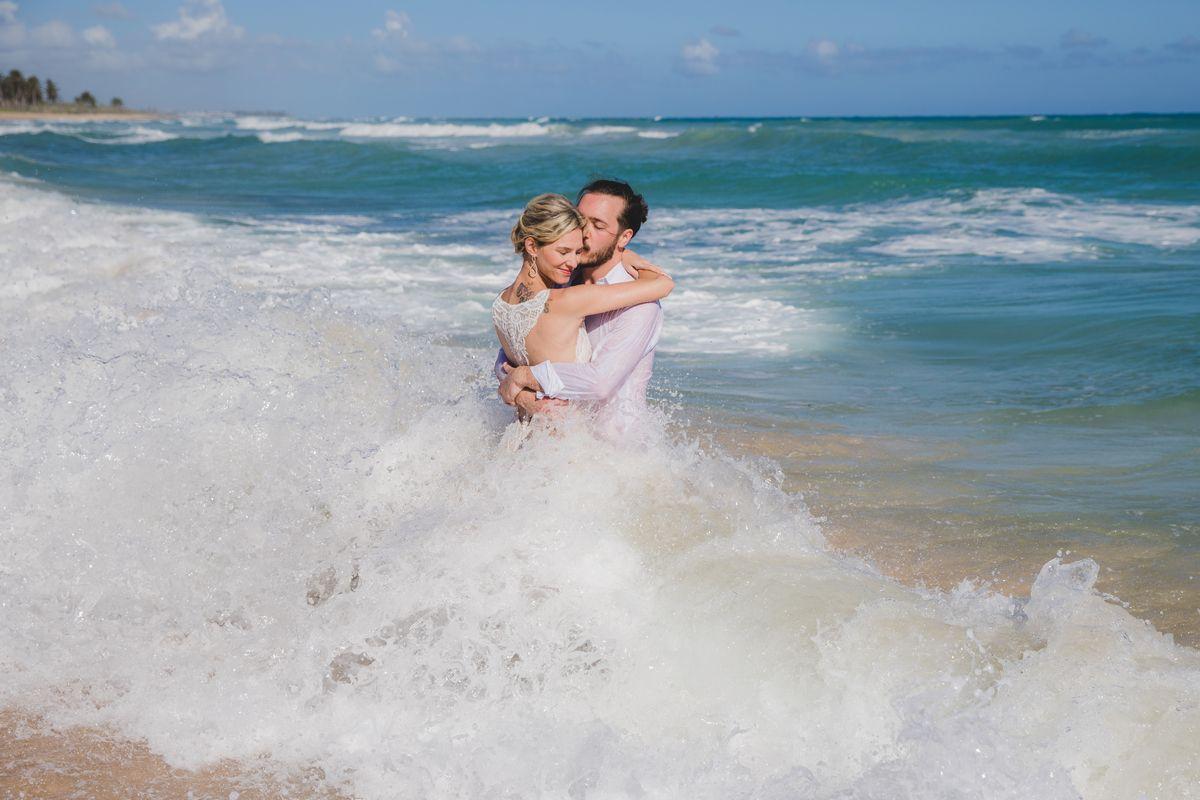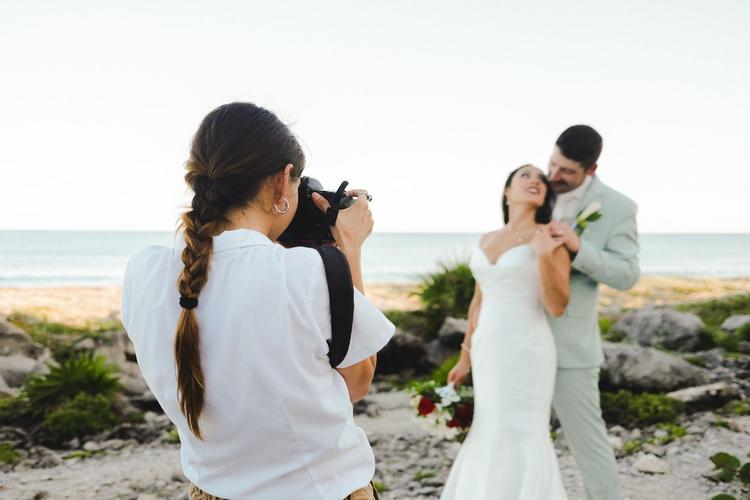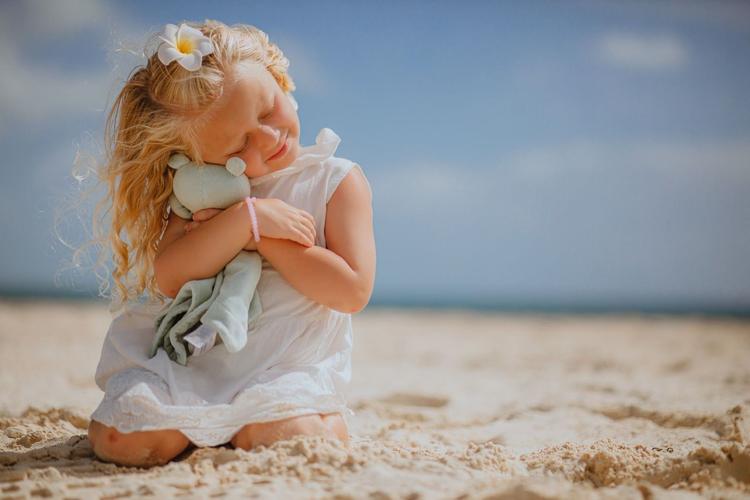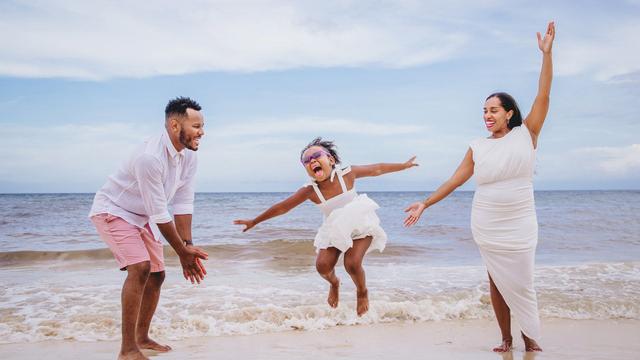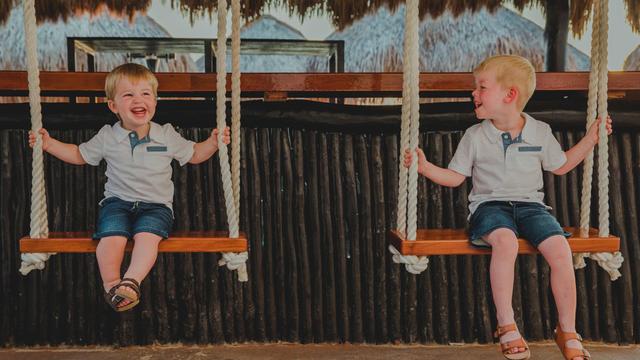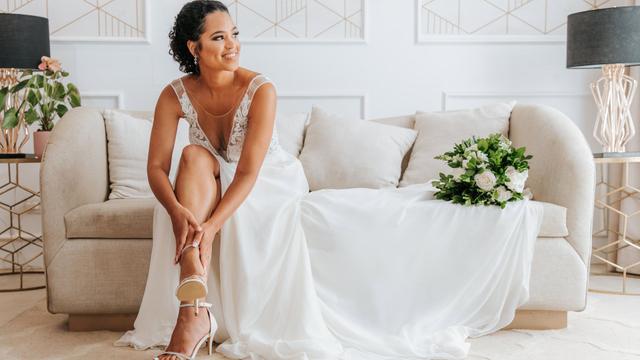Planning a beach wedding can be a magical, exciting, and romantic experience, but there are a lot of details to consider during the process. You’ll most likely want to get help from a professional wedding planner who has worked with your chosen destination or the hotel wedding coordinator. They will know what documents you need, which vendors are best, and ideal wedding locations in the area. A little preparation can go a long way—use the beach wedding tips below to get organized and ensure your wedding day is a stress-free, magical experience.
Establish a Dress Code
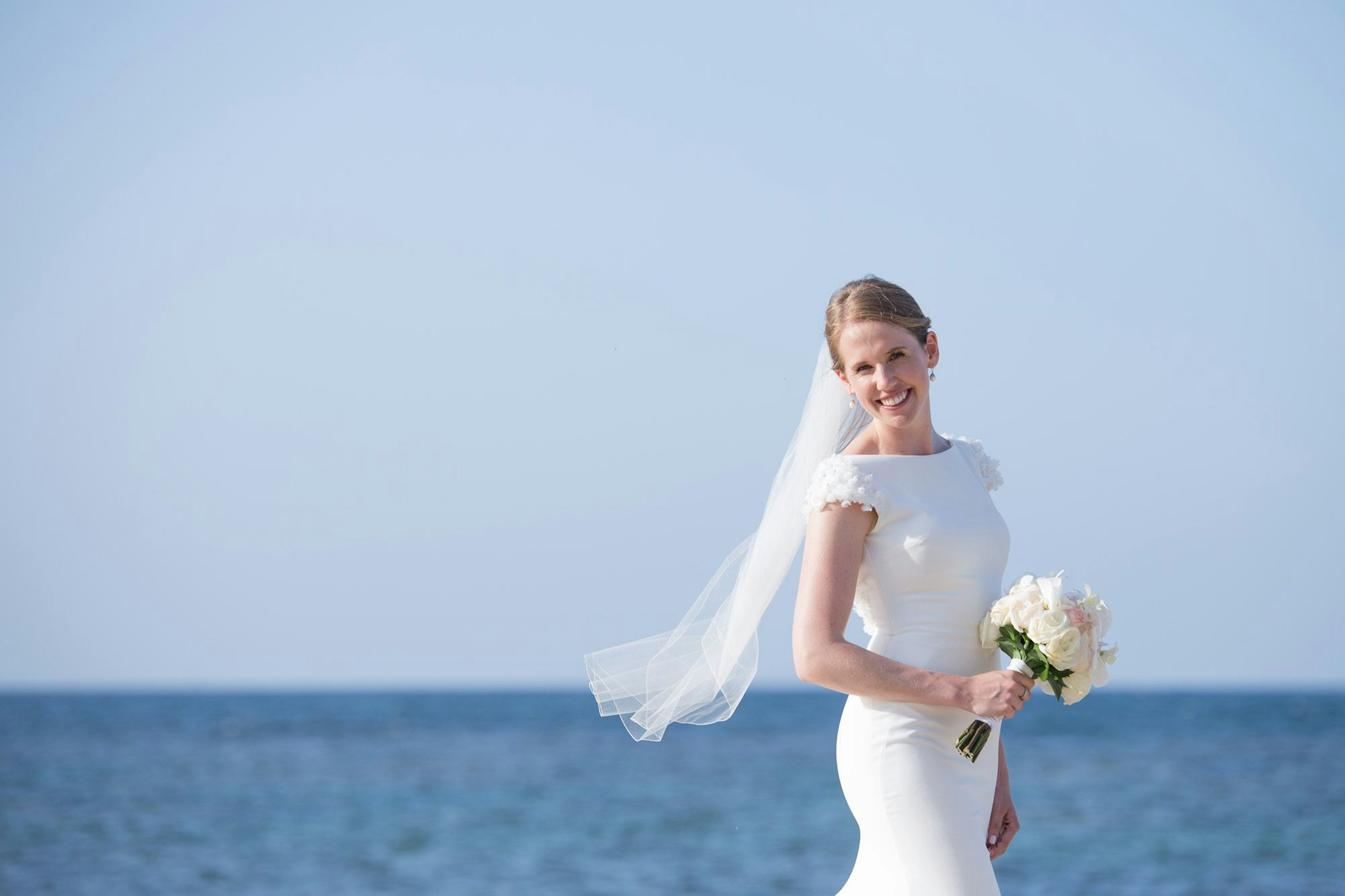
Let your guests and members of the wedding party know in advance how casual or dressy your beach wedding will be so they can dress accordingly. You’ll also want to plan your own wedding attire based on the setup of the ceremony and your desired dress code.
For the Bride
If you’ll be walking up the aisle in the sand, you should avoid extra-long dresses and trains. You don’t want them dragging and getting dirty or ruined. You will also want to choose a dress made from a lighter material so you don’t overheat, but have a wrap nearby if you will still be on the beach in the evening when it gets colder.
For the Groom
Find a suit made from a lighter weight material or opt for a more casual, but still dressy, shirt and pants. You should also look for clothing in lighter colors like tan or khaki. You’ll be a lot more comfortable in the heat, as well as look great against the beach backdrop.
For the Guests
Follow any specifications given to you about the dress code and aim to look nice without overdoing it. Sundresses or cocktail dresses made from light-weight fabrics are great for women. Men should not wear shorts, but can generally get by in polo shirts, linen or cotton button-downs, and linen or khaki pants.
Hair & Shoes for Beach Weddings
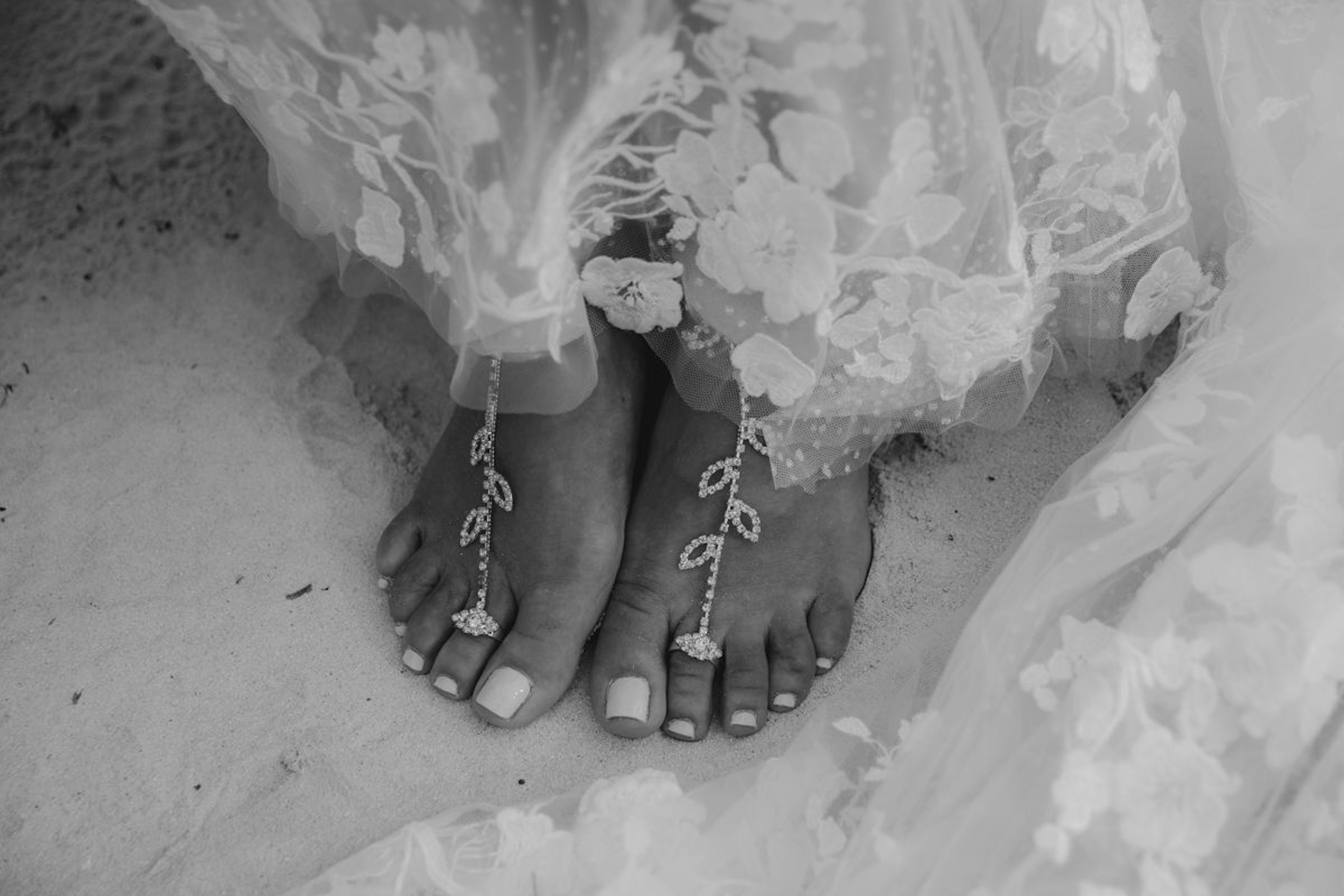
Loose and flowing hair is a popular look for beach weddings, but if a breeze picks up, it can get in your face and distract from the moment. Consider an updo or at least pull back part of the hair to keep it off your face. You may also want to invest in a good setting powder or spray to keep your makeup from running or rubbing off on clothing.
Shoes for beach weddings will depend partially on the established dress code. You may want to go barefoot or in flip flops, but make sure to discuss shoe options with your wedding party so everyone is on the same page. As a compromise between comfort and class, try choosing dressy looking sandals. You also want to avoid anything with heels since the ground you are walking on is extremely unsteady. Opt for wedges or flats instead of heels.
Other Tips
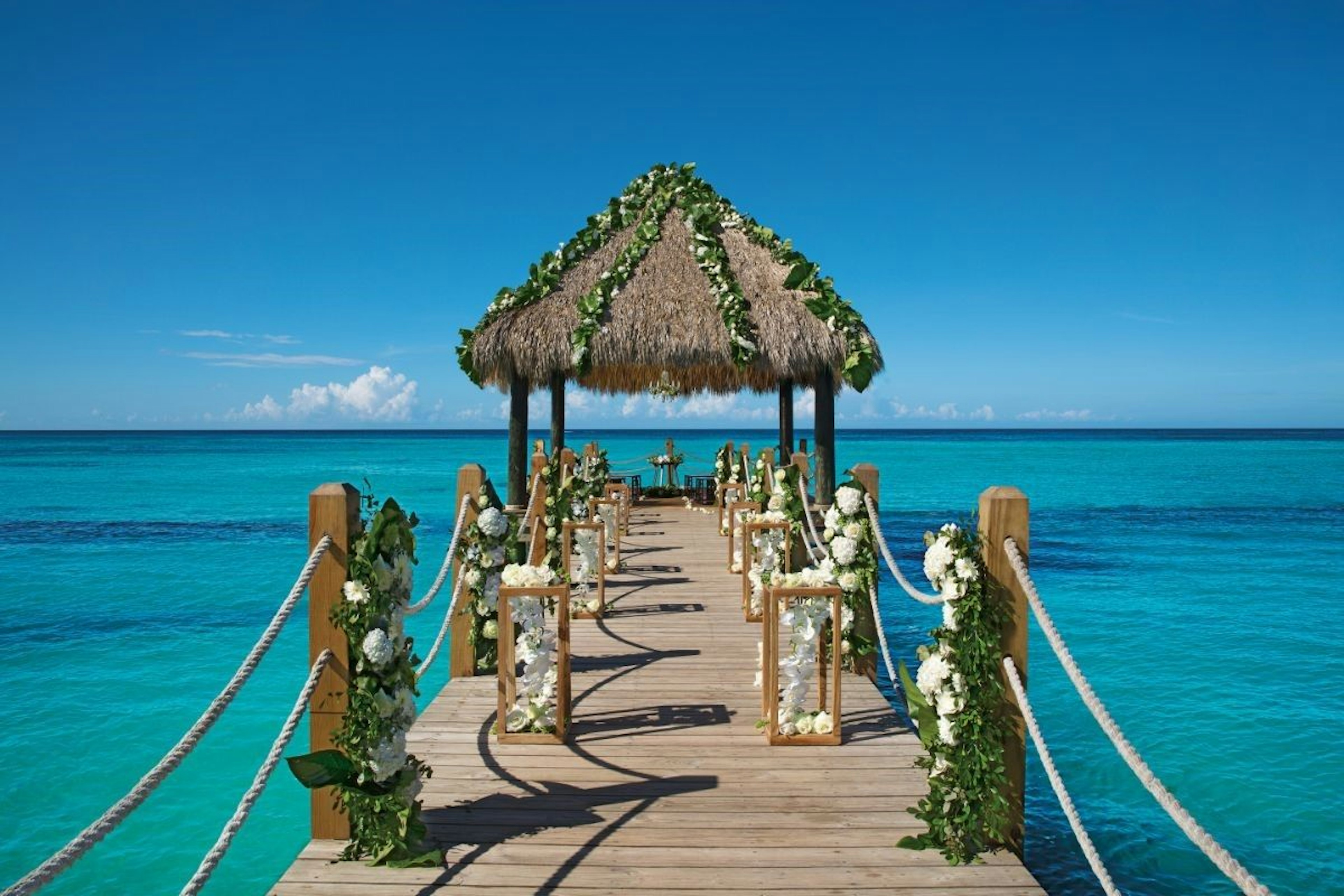
Once you’ve chosen a dress code and decided how laid-back or upscale you want your event to be, it’s time to get into the details. The best way to get everything done just the way you want it is to hire a local wedding planner who is familiar with the venue and can supply items you don’t want to pack and bring with you. You may also want to consider the following tips.
- Water – Provide water bottles or other accessible drinking water for guests and be sure to avoid overheating and dehydration yourself.
- Sandy Feet – If guests will be wearing sandals or removing their shoes for the ceremony, create a station where they can brush sand from their feet before putting their shoes back on. Paintbrushes are a great tool for this.
- Sun Protection – Remind guests to wear sunscreen and to bring sunglasses, a hat, or other type of sun protection. You may also want to consider some type of archway or canopy over the bride and groom.
- Tan Lines – If you will be spending time at the beach before the ceremony, use plenty of sunscreen to avoid burning and make sure your swimsuit doesn’t create tan lines that will be visible when wearing your wedding dress. The same applies to bridesmaids.
- Volume Control – The beautiful sounds of crashing waves make wonderful background noise, but can sometimes drown out the sounds of the ceremony itself. Ask your wedding planner about microphone equipment for the officiant and other participants.
- Privacy – Many beaches are open to the public, making it hard to get that intimate atmosphere. Make sure to plan your beach wedding at a private beach or resort so you will be undisturbed.
- Time of Day – Sunrise and sunset are the most ideal times to hold the ceremony. In the middle of the day, when the sun is high, it casts harsh shadows on faces and is extremely unflattering. However, a thin, white canopy can filter this harsh light if you choose to get married mid-day. If you want to be able to see the tropical backdrop in your photos, you also want to avoid night weddings.
- Flowers – Some flowers hold up in hot and humid climates better than others, so make sure you choose something that won’t wilt.
- Bug Spray – The mosquitos don’t know they weren’t invited, but you can do all you can to not make them feel welcome.
- Cool Off – If possible, include fans or misters around the perimeter to help keep everyone cool.
- Keep the Cake Cold – Most types of frosting melt when they get too hot. Keep the cake cold for as long as possible and ask the cake designer what they would recommend for withstanding heat and humidity.
- Plan B – Although we hope this doesn’t happen, you may need to change your location due to inclement weather. Make sure you have a backup plan in advance.
- Photographer – Check with your hotel or wedding planner for recommendations on photographers they have worked with at previous weddings. They should have experience shooting beach weddings and preferably familiar with the location or resort. Beach wedding photography is a little different than other locations, so it’s important to have someone who knows how to work with this type of lighting.
Adventure Photos
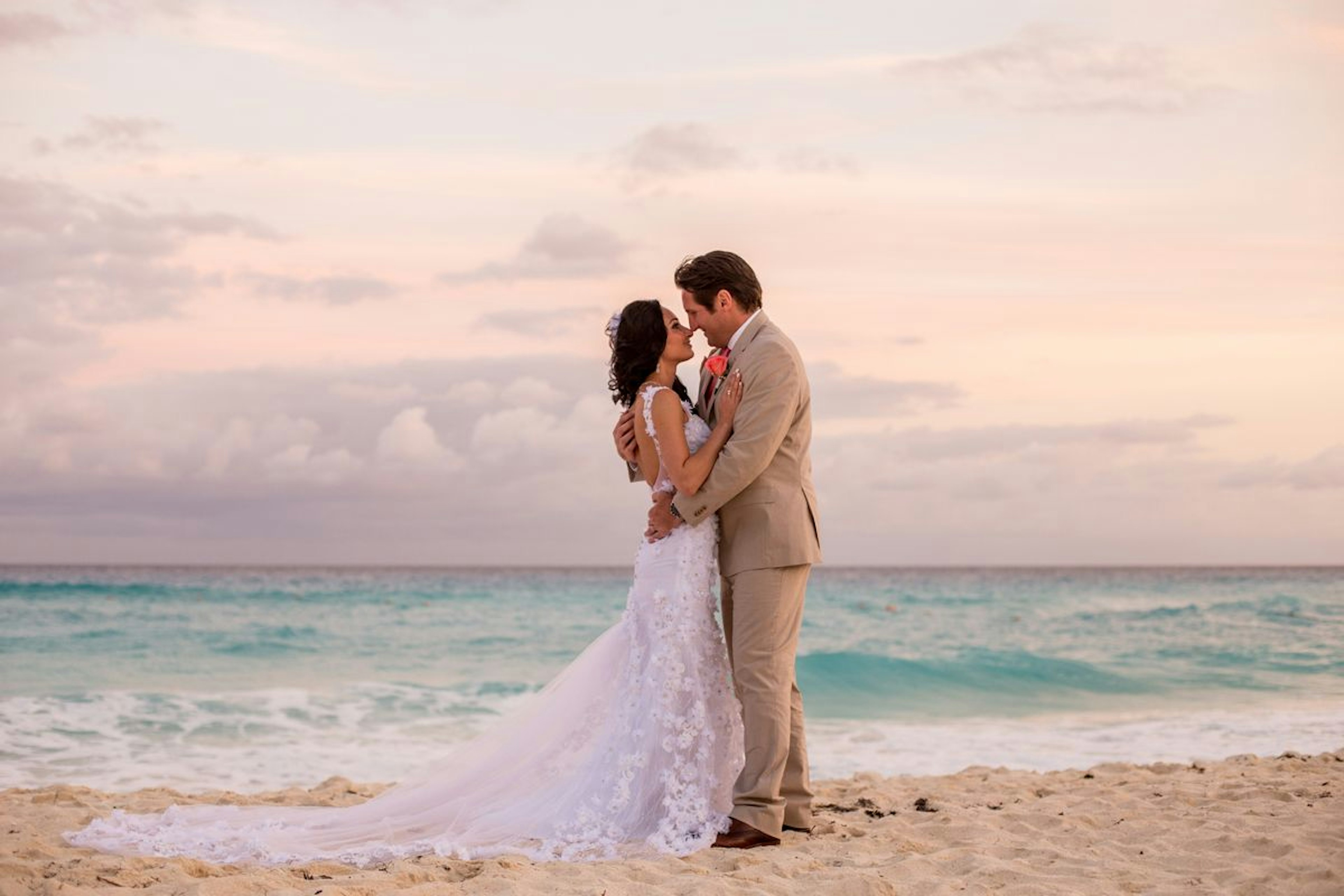
Contact Adventure Photos today for more information about how you can hire an experienced destination wedding photographer and videographer for your big day. Ask us about our talented wedding photography planning associates!
